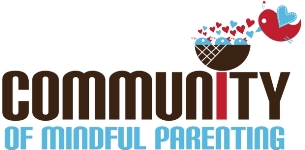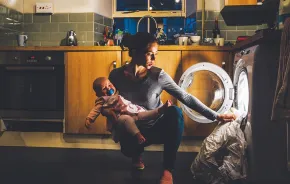
Photo:
Lawrence Cohen
Becoming a dad 26 years ago changed everything for psychologist Lawrence J. Cohen. He saw the importance of connecting with children and their emotions in a new way, and how play was key to that connection.
Since then, Cohen has written the books Playful Parenting and The Opposite of Worry, and cowritten work on roughhousing, childhood friendships and teasing. His books have been translated into 14 languages. In addition to running a private therapy practice, the father of two and grandfather of one teaches parenting classes and speaks at schools.
Cohen’s books offer countless ideas for how to turn a typical parent-child impasse into a game. Drawing from his wisdom, I’ve already changed a stressful “getting out the door for work” routine with my 4-year-old into play. She has fun, we get in the car on time and I don’t raise my voice (or my blood pressure). Cohen can count me among the converted.
How did you come up with the phrase “playful parenting”?
I called it “playful parenting” not because it’s play all day long, but because play and laughter go out the window when we’re under stress. And we’re always stressed! At the heart is connection — emotional connection and empathy. I wanted to put play back in the mix and to do that by joining children in their world. Children live in the world of play.
How does “play” work as a way to connect?
We as adults have come to think about conversation as the number-one way to form a bridge between two people. (And we’re not even good at that anymore. We send text messages.) But for children, conversation is not at the center of how they connect and form a bridge with someone else. There’s basic primal affection and love — and there’s play.
What’s a game you’ve used with a child?
For a child dealing with separation anxiety, I play the “hello-goodbye game” with a stuffed animal. I’ll say, “Hello.” Then, “I’ve got to go. Bye!” Then, “I’m back!” I do it 50 times and keep it lighthearted.
We’ve taken a painful experience — we’re not laughing at it or mocking it — and we’re bringing it to light so the child can see it better. Instead of “talking about it” when we want to be helpful, we can play with it and bring it into the open, and put them in charge. We’re not solving the problem, but we’re making a connection. We’re saying we’re there for you. Research about secure attachments is very clear. It makes for better friendships, better marriages, better grades, better successes, less addiction.
In your work, you’ve written about finding ways to “invite” the bad behavior and turn it on its head (you’re also not a fan of time-outs). Do people ever say you’re being too easy on kids?
A lot of parents ask me, “If your child does something wrong and you offer reconnection, isn’t that rewarding that behavior?” I’ve never seen that to be the case. I’ve never seen, “Oh, the last time I hit my sister, my mother gave me more attention because I wasn’t getting enough attention. I know what I’m going to do. I’m going to hit my sister tomorrow and get attention.” Children don’t think that way.












